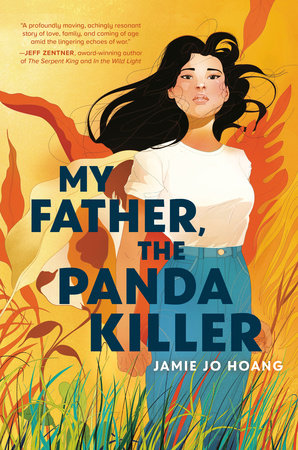Jamie Jo Hoang writes about intergenerational trauma in her book My Father, the Panda Killer. Her focus is on the perilous journeys out of conflict that many took during the Vietnam War Era.
Hoang tells her story with alternating perspectives—that of Phúc, who was born into wartime during the Vietnam War and that of Jane, Phúc’s daughter. As Jane struggles to understand her father’s anger and abuse, she searches for the source in memories, in family stories, and in history.
Readers learn that Phúc’s soul lives in the rings of the Banyan tree where he escapes to play his bamboo flute. When he is 11, to escape the death and destruction of the bombs, Phúc boards a refugee ship that is eventually attacked by Thai pirates. The subsequent years surviving presents challenges that no human should have to endure: starvation, rape, murder, and insufferable claustrophobic conditions. Phúc is haunted by the ghosts of his past, by the things he was forced to do in the name of survival. He believes the cost of surviving means he’ll never be at peace.
Four years after her mother’s abandonment, Jane is about to graduate from El Dorado High with plans to attend UCLA, but she fears leaving her seven-year-old brother Paul alone to deal with the physical violence of their home life. Convinced that equality is a fairy tale and that she isn’t going to be “like those weak-ass kids whose parents ruined them—who had to go to therapy because Mommy left” (5), Jane develops a calloused and cynical attitude: “People leave, life is shit, and some of us don’t have time to sit on a couch and talk about our feelings” (5). Instead, she oscillates between being a “spineless chicken” and yearning to be more like her friend Jackie, a confident force who isn’t afraid to be herself.
Perhaps not as chilling as The Kite Runner by Khaled Hosseini, Hoang’s book is still a challenging one to read. It explores the effects of being damaged—of being trapped and choked by raw emotion. Because so much of her current life is out of her control, Jane takes comfort in the small things and waits for age to free her. Although she can’t fully protect Paul, she tries to make sure he knows that the abuse is not his fault and that no one deserves to be beaten.
- Posted by Donna

